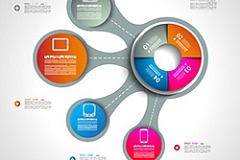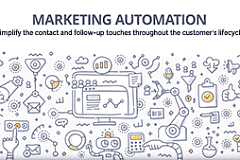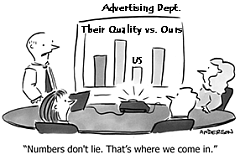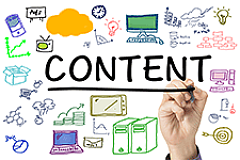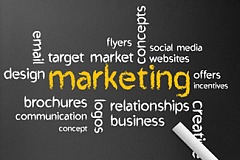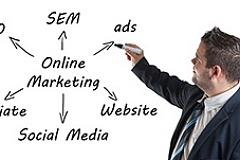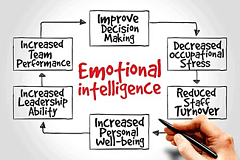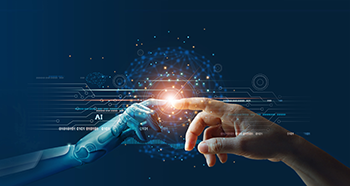 Despite all the science-fiction-movie hype around artificial intelligence (AI), it is really just a computing method that allows machines to imitate some human abilities. These include recognizing objects, accessing data banks that deliver various options, and calculating the odds of success when one of those options is applied.
Despite all the science-fiction-movie hype around artificial intelligence (AI), it is really just a computing method that allows machines to imitate some human abilities. These include recognizing objects, accessing data banks that deliver various options, and calculating the odds of success when one of those options is applied.
Everything AI does is based on data, which is gathered and input by humans. Even the ability of machines to "learn" is based on how successfully they applied solutions in previous similar situations. Unlike humans, data storage doesn't "forget" things, which potentially makes their accuracy somewhat higher.
The Benefits of AI in Marketing
The main advantage of AI in marketing is that business owners and marketers no longer need to try and figure out what type of activities are likely to work with the customers they want to reach.
[quotes]Based on business intelligence generated by millions of records, AI can tell you in a second what marketing methods worked for whom and under what circumstances.[/quotes] This information enables you to mimic successful actions and campaigns and apply them to your own products and services.
Here are some of the ways AI is already reinventing marketing in 2021.
1. Enabling the Use of More Accurate, Real-Time Analytics and Measurements
Online retailers usually wait for customers to place orders and then ship the products (called the shopping-then-shipping model). In the future, AI may be able to use behavior analysis to predict what individual customers are likely to want, based on rich, extensive data sets that include previous shopping habits.
If AI's predictions are accurate enough, retailers might shift to a shipping-then-shopping business model. Using data to identify customers' preferences, they will ship items to customers without an order and give them the option to return what they don't need.
Pioneers of this business model, like Birchbox, Stitch Fix, and Trendy Butler, began using AI in 2018 to predict customers' wants, with varying levels of success.
2. Automating Marketing Processes
Activities that were previously labor-intensive, such as content publication and pay-per-click advertising, no longer have to be driven by SEO specialists making intuitive choices of keywords based on exhaustive research. [quotesright]AI can sift through virtual mountains of data instantly to determine the best keywords and placements for messages. [/quotesright]
It can also handle the retargeting of ads and optimize your media-buying budget beyond anything a paid human can do.
3. Improving Customers' Experiences and Support
A report by McKinsey shows that the customer journey is more important to business success than any other criteria. Using data and predictive modeling, AI can identify common problem areas and enable the company to address them. This smooths the way for customers and greatly reduces potential issues, both before and after sales.
4. Optimizing Pricing Strategies
Research from PricewaterhouseCoopers shows that 60 percent of customers base their decision to buy on price. Optimizing your pricing can help boost revenue and sales by up to 9 percent and 24.7 percent respectively. AI can help you improve your pricing by taking into account invisible relationships, such as how a price change for one product affects the sales of other items.
It can track competitor activities on a minute-by-minute basis and help you keep pace with the market fluctuations. The algorithms can set personalized pricing based on stock levels, point of sale, and even individual customer usage levels.
5. Increasing Customer Retention
More than half of all customer queries can be managed by AI-based chatbots these days, which understand complex requests and personalize their responses. With customization and relevance helping to create new levels of consumer interaction, sellers can tailor marketing campaigns based on customer intent and communicate more successfully than ever before.
While all this increases consumer expectations, it also enhances the supplier’s ability to satisfy those expectations, which reduces customer churn. [quotesright]The higher your levels of customer satisfaction, the better your retention rates will be. [/quotesright]
Getting Started with Artificial Intelligence

All this might sound like a daunting proposition, but AI really is still in its early days, which makes it a good time to get in. You can start by reading this all-in-one guide from Ideamotive and setting objectives for digitally transforming your marketing. Think about consulting an expert to help identify opportunities to use AI and machine learning to automate your advertising and communications, one step at a time.
As AI technology continues to mature and more compelling use cases come to light, I expect an "AI-first" strategy to become the new normal in marketing by 2025. Don't let your business get left behind.
Resources:
https://www.ibm.com/cloud/learn/what-is-artificial-intelligence
https://link.springer.com/article/10.1007/s11747-019-00696-0
https://www.pwc.com/gx/en/retail-consumer/publications/assets/total-retail-global-report.pdf
https://www.forbes.com/sites/falonfatemi/2019/12/23/how-to-conquer-customer-churn-with-ai
https://www.startupgrind.com/blog/ai-is-changing-marketing-and-heres-what-you-need-to-do/
https://www.pcmag.com/news/10-steps-to-adopting-artificial-intelligence-in-your-business





